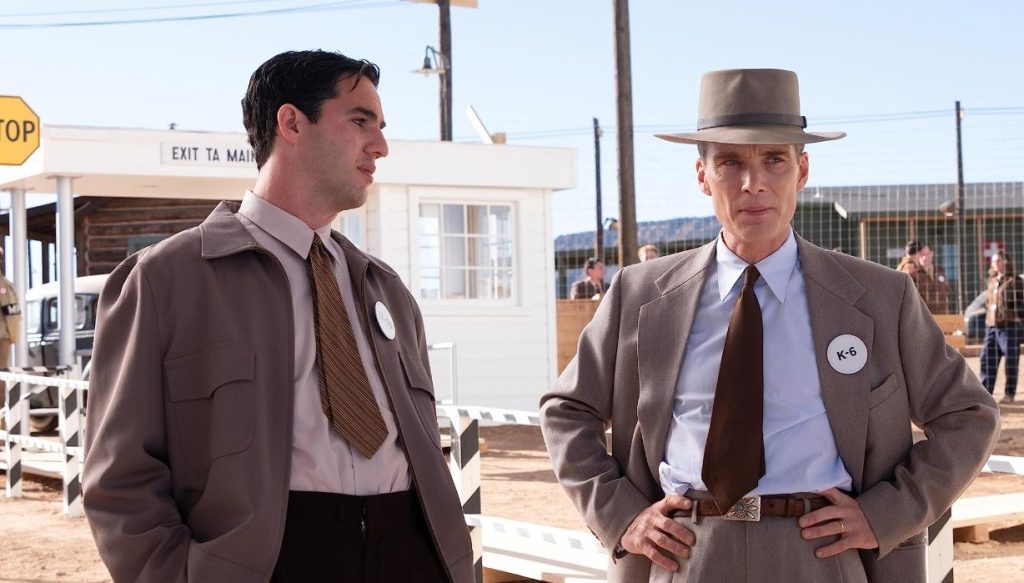
J Robert Oppenheimer lived a life worthy of a tragedy by Sophocles or Shakespeare. Like Oedipus or Othello, he planted the seed of his own destruction and nurtured the life it engendered. Since the cultures of Ancient Greece or Elizabethan England are unlikely to reoccur, we are left with what we have. What we have is pretty good.
Oppenheimer’s Iago, in this insightful and compelling production, is Louis Strauss, played in a career defining performance by Robert Downey, Jr. Here he is a scheming, resentful, and envious weasel, a Navy reserve Admiral who never held a blue water command. He reminds you of General Courtney Massengale in Anton Myrer’s excellent study of military leadership, Once an Eagle. Such men are more politicians than soldiers.
In 1980 PBS aired at seven-part BBC production Oppenheimer , with Sam Waterston in the title role. It covered pretty much the same material as the current feature, although in seven hours and at 100dth the cost.
The narrative in this feature film is wisely not told in a linear fashion, unlike the series. Nolan separates scenes of Oppie’s point of view in color, with those of his absence in B&W.
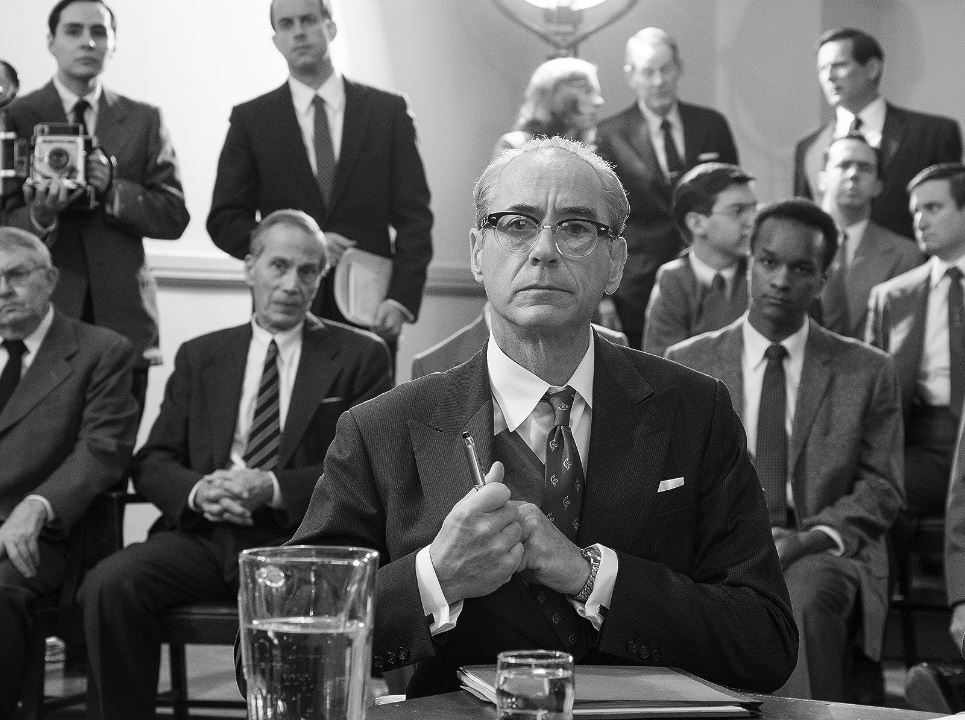
Nolan does the best job possible of a visual suggestion of the subatomic world of physics, ranging from the hydrogen furnace of a star to the quantum universe which Oppie contemplates (quantum entanglement is something I’ll never grasp).
Cillian Murphy inhabits the ethically challenged Oppie, along with his dazzling intelligence and learning. Absent from this narrative is his reaction to the photographs of the atom bomb causalities,
“Now we’re all sons-a-bitches.”
When General Curtis “Bombs Away” LeMay took command of the army air force strategic bombing of Japan, he told his pilots they were all about to become war criminals. The terror firebombing of cities was about to begin. A million people burned as a result of the bombs dropped on Tokyo creating a firestorm. A similar firestorm destroyed the German city of Dresden (Kurt Vonnegut gives a good account in his novel Slaughter-House Five.)
The terror bombing of cities began in World War I with the zeppelin raids over London. Intended to weaken the civil population’s resolve, it had the opposite effect. These were the findings of the post-war US Strategic Bombing Survey. The lesson has yet to be learned.
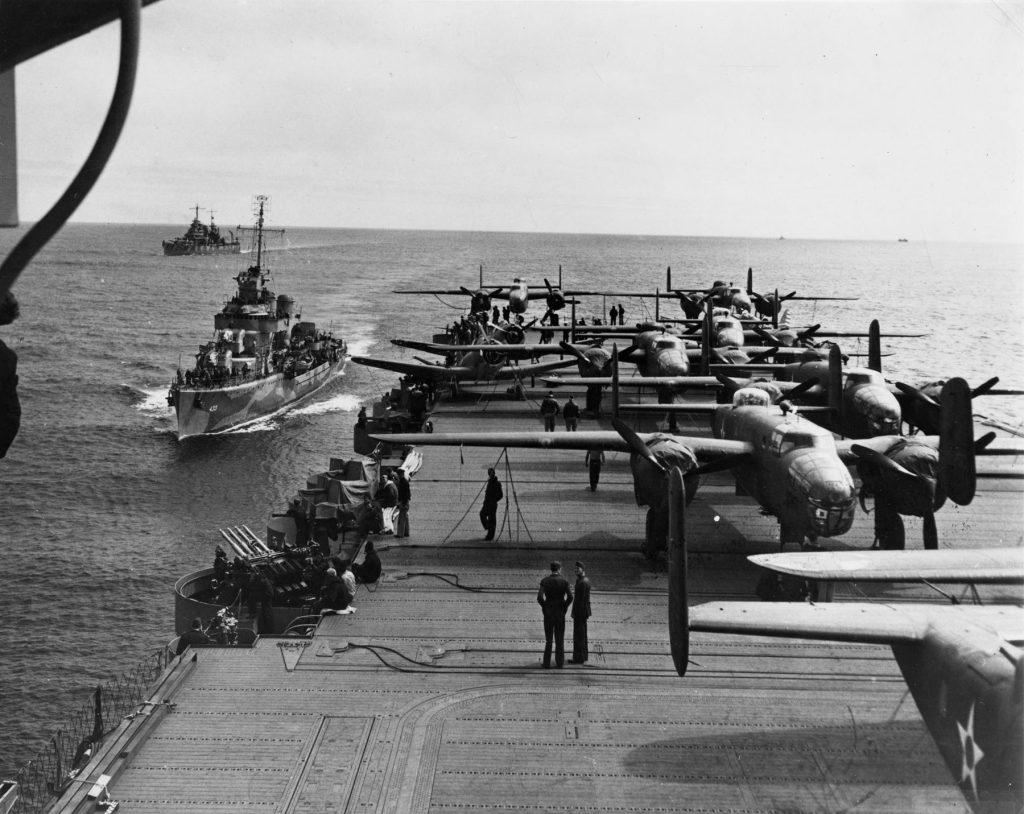
Harry Truman would never put himself in the position of explaining to tens of thousands of American mothers why their sons were killed in an invasion of Japan, when he had a bomb that could have ended the war. The Manhattan Project cost over $30 billion in 2020’s tax payer dollars. the bombs were going to be used.
However, after the second bomb destroyed Nagasaki, the surrender was by no means a done deal. The cabinet debated until the Emperor put his foot down. It was over. He recorded the surrender statement, in which he never used the word surrender on vinyl disks to be broadcast the following day.
A group of young army officers would have none of it and were determined to save the Emperor from himself. They tore through the palace looking for the recordings but to no avail. Matt Demon is a fine actor and does justice to the role of General Groves with a single exception. The General was a morbidly obese man who ate Hersey bars all day.
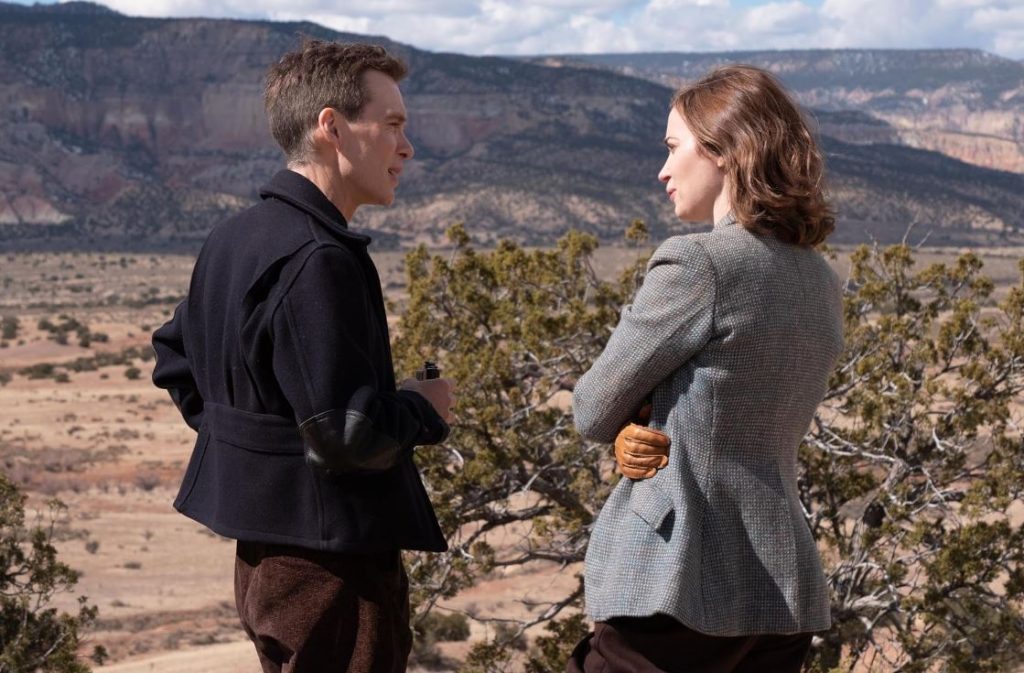
Robert and Kitty Oppenheimer along with Jean Tatlock, Oppie’s mistress, ran afoul of this nation’s Holy War against communism. Swine like Roy Cohen, Richard Nixon and J Edgar Hoover made their reps hounding Americans who questioned the capitalist status-quo. Men who swore to defend the Constitution were its greatest enemies.
Many were happy to allow the democratically elected government of Spain fall to the revolt of fascist thug Franco rather than uphold the principles they claimed to hold dear.
Did the FBI aid the deeply troubled Jean Tatlock to her suicide? (She was bisexual when it was considered a mental disorder.) I would not put it past them. Twenty-five years later they hounded Jean Seberg to death, and Hoover likely ordered the murder of the Chicago Black Panther Chairman Fred Hampton.
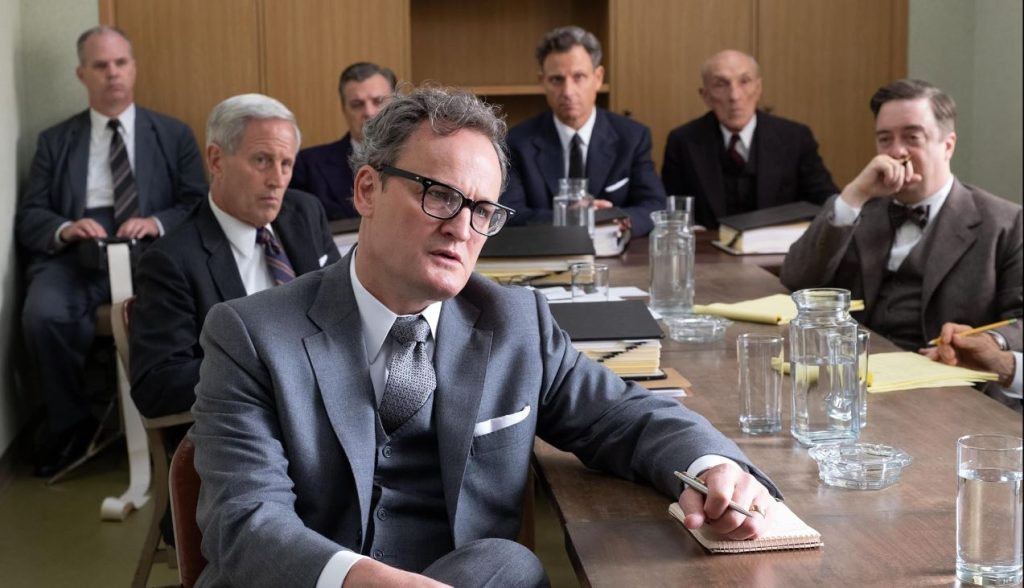
Oppie had a vision for the future of a world of atomic weapons. The men who opposed him lived mentally in the pre atomic past. When the world learned of atomic fission in 1938, every physicist knew of the possibility of an atomic bomb. The rest was largely an engineering problem. The genie was out for all to see. Even in the Soviet Union.
In his memoir Disturbing the Universe physicist Freeman Dyson offers a view of Oppie as he knew him at the Institute for Advanced Study. He was a man who did not suffer fools gladly, and was quick to determine a fool. The men who sat in judgment of him at the hearing to deny his top-secret Q clearance were, if not fools, then the agents of fools.
Oppenheimer refused to see the hearing as a tragedy. “It was a farce”, he told Dyson.
Leave a Reply